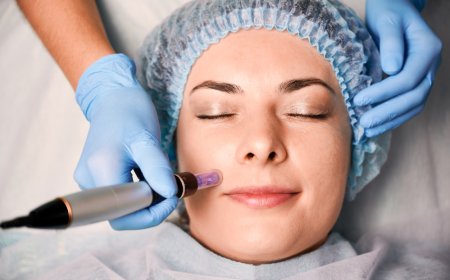Isotretinoin for Acne: Side Effects vs. Results
Acne is more than just a skin concern—it can deeply impact self-esteem, mental health, and overall quality of life. For those who have tried countless over-the-counter treatments, antibiotics, or topical medications without success, isotretinoin (commonly known by the brand name Accutane) often becomes the last and most powerful option.

Acne is more than just a skin concernit can deeply impact self-esteem, mental health, and overall quality of life. For those who have tried countless over-the-counter treatments, antibiotics, or topical medications without success, Isotretinoin 20mg(commonly known by the brand name Accutane) often becomes the last and most powerful option.
But along with its reputation for delivering dramatic acne clearance comes a host of potential side effects, making many people wonder: Is isotretinoin worth it? In this article, we explore the balance between results and side effects, so you can make an informed decision.
What Is Isotretinoin?
Isotretinoin is a powerful oral retinoid derived from vitamin A. It works by addressing acne on multiple levels:
-
Reducing oil (sebum) production
-
Shrinking oil glands
-
Preventing clogged pores
-
Reducing inflammation
-
Targeting Cutibacterium acnes (bacteria involved in acne development)
This multi-targeted approach makes isotretinoin uniquely effective, especially for severe nodular or cystic acne, or acne that doesnt respond to other treatments.
The Promised Results: What You Can Expect
? 1. Significant Acne Clearance
Most users see an 8090% reduction in acne after a full course (usually 46 months). For many, the results are long-term or even permanent. You can take accutane for acne from dosepharmacy to get acne free skin.
? 2. Smoother, Clearer Skin
As acne fades, skin texture improves, and the frequency of breakouts dramatically reduces.
? 3. Fewer Acne Scars
By stopping severe breakouts early, isotretinoin helps prevent deep scarring in the long run.
? 4. Boost in Self-Esteem
Clear skin can have a powerful emotional impact. Many users report greater confidence, better mood, and improved quality of life after treatment.
The Catch: Side Effects You Should Know
Despite the promise of clearer skin, isotretinoin can come with a range of side effects, from mild to severe. Some people experience minimal discomfort, while others may find the side effects difficult to manage.
? Common Side Effects
These are experienced by most users to some degree:
Dry Skin and Lips
The most common side effect. Nearly everyone on isotretinoin will deal with chapped lips, dry hands, and flaky facial skin.
Dry Eyes and Nose
You may notice dry eyes, irritation, or difficulty wearing contact lenses. Nosebleeds from dry nasal passages are also common.
Muscle and Joint Pain
Some users report aches, especially after exercise or in the lower back.
Sun Sensitivity
Your skin may become more prone to sunburn, making sunscreen essential.
?Less Common Side Effects
These are still important to monitor and may require dosage adjustments:
Fatigue or Headaches
Often manageable but should be discussed with a doctor if persistent.
Changes in Vision or Night Blindness
Rare but serious. Let your doctor know if you notice visual changes.
Thinning Hair
Temporary hair shedding can occur in some users.
?Serious or Rare Side Effects
These are rare but should be taken seriously:
Mood Changes
Some users have reported depression, anxiety, or even suicidal thoughts. While the link isnt fully established, mental health should be closely monitored throughout treatment.
Liver Function and Cholesterol
Isotretinoin can affect liver enzymes and increase blood lipids. Regular blood tests are required to monitor this.
Teratogenic Effects (Birth Defects)
This is the most critical risk. Isotretinoin can cause severe birth defects if taken during pregnancy. Women of childbearing age must follow strict pregnancy prevention programs, use two forms of birth control, and take regular pregnancy tests.
Managing the Side Effects
The good news? Most side effects are manageable and can be minimized with proper care:
? Use a heavy-duty lip balm and moisturizer daily
? Stay hydrated and avoid long hot showers that dry out skin
? Use artificial tears if experiencing dry eyes
? Wear sunscreen SPF 30+ every day
? Follow up regularly with your dermatologist for blood tests and adjustments
? Report any mood changes immediately
Doctors often start patients on a low dose and increase gradually to allow the body to adjust and reduce the risk of side effects.
How Long Does It Take to See Results?
Patience is key.
-
First Month: You may actually experience a worsening of acne ("purge") as deep-seated breakouts are pushed to the surface.
-
Second to Third Month: Most people begin to see a steady reduction in acne.
-
By Month 46: Major improvement or near-complete clearance is typical.
Who Is a Good Candidate for Isotretinoin?
This treatment is usually recommended for:
-
Severe nodular or cystic acne
-
Acne that doesnt respond to antibiotics or topical treatments
-
Acne causing emotional distress or physical scarring
-
Persistent adult acne
-
Individuals able to follow safety protocols (especially regarding pregnancy prevention)
It is not typically used as a first-line treatment due to its strength and potential side effects.
Is It Worth It? A Balanced View
Yesfor the right person. Isotretinoin is often life-changing, offering long-term relief when other treatments fail. But its not a casual fix and comes with responsibilities.
Heres a quick comparison:
| Results | Side Effects |
|---|---|
| Up to 90% reduction in acne | Dry skin/lips (very common) |
| Long-term or permanent acne control | Mood changes (rare, monitor closely) |
| Improved self-confidence and appearance | Potential birth defects (requires strict care) |
| Prevention of future acne scarring | Liver/blood lipid changes (requires testing) |
Final Thoughts
Isotretinoin can be a powerful ally in the battle against acnebut it must be used wisely and carefully. For many people, the dramatic improvement in their skinand their confidencemakes the journey worth it.
If youre considering isotretinoin, talk with a dermatologist. With close monitoring, clear communication, and proper skincare habits, you can minimize side effects and maximize resultsgetting one step closer to clearer, healthier skin.
































